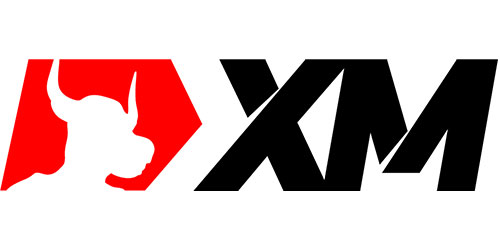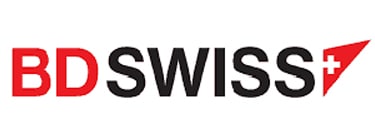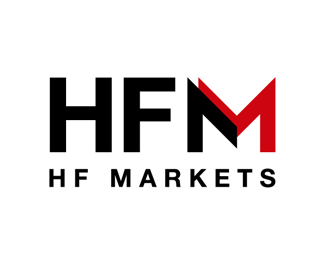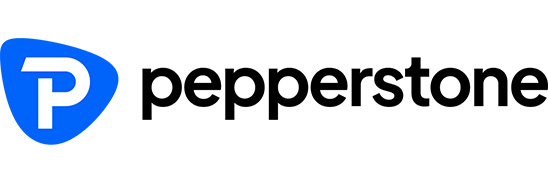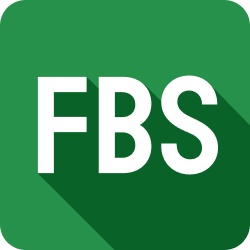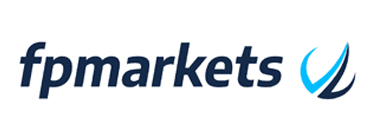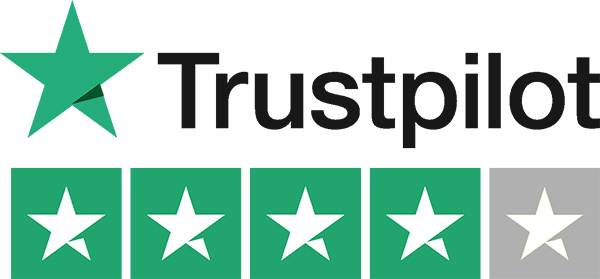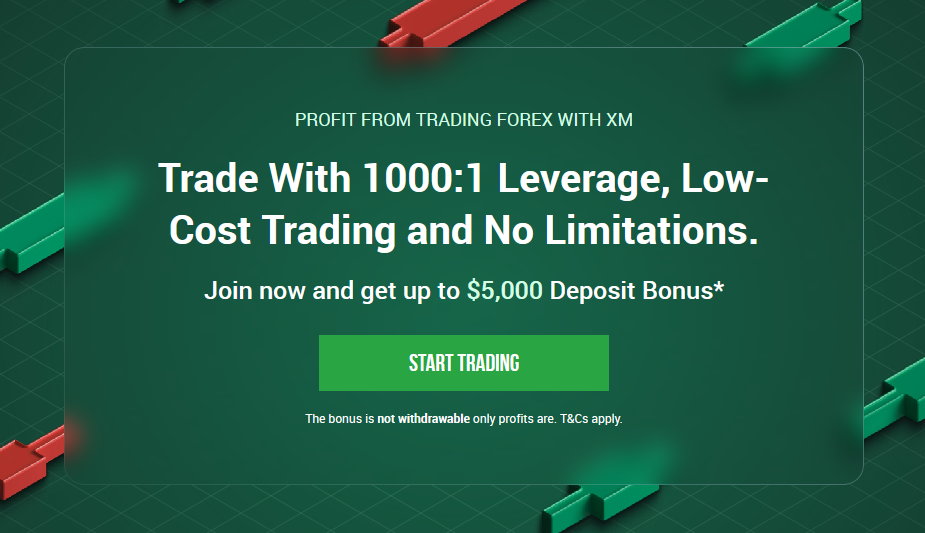
Forex brokers, also known as foreign exchange brokers or forex dealers, are financial professionals that purchase and sell currencies on their clients' behalf while charging a fee for their services.
Top 10 Forex Brokers
Broker
Rating
Regulators
Min Deposit
Leverage
Website
Top 10 Forex Brokers
Broker
Rating
Min Deposit
Leverage
Foreign exchange brokers act as ‘middlemen' in the foreign exchange market, matching the currency buy and sell orders placed by their clients with the orders placed by other clients.
In certain cases, brokers will offer you market data and advise on the items you wish to purchase or sell. A broker must be licensed to provide advice and execute the sale, and they will only conduct deals on your behalf after you have permitted them to do so.
A stockbroker, a forex broker, a full-service broker, and a discount broker are the four most common types of brokers in the industry. Even though they all serve as a conduit between the forex trader and another party, they all work in a somewhat different way.
Others are ‘advice and management-only brokers, and others execute trades while also providing advice and managing your account.
There are two methods by which forex brokers are rewarded. The first method is to use the bid-ask spread of a currency pair to make a profit.
Second, some brokers demand extra fees on top of the base rate. Some charge a cost per transaction, while others charge a monthly price for access to a certain software interface, and still others charge fees for access to specialized trading products such as exotic options, among other things.
Forex brokers are regulated in the regions where they offer services and products by market regulators, including:
- The Financial Conduct Authority (FCA) in the United Kingdom
- The Cyprus Securities and Exchange Commission (CySEC) in Cyprus
- The Financial Sector Conduct Authority (FSCA) in South Africa
- The Australian Securities and Investments Commission (ASIC) in Australia
What does a Forex Broker do?
- Open/Close Leads
- Investor Communication
- Attract new clients while maintaining current client relationships
- Offer competitive foreign exchange rate
- Maintains strong client relationships
- Maintains accurate records
- Sells products and services
- Makes cold calls
- Generates leads through multiple sources
- Stay updated with financial news and regulations
1. Opens and closes new leads: Attracting forex clients to your company may be a difficult endeavor. Both new and seasoned forex brokers are perplexed as to how they might attract more forex clients who are eager to place their confidence in them with their assets.
Both new forex businesses and long-standing businesses need to get new leads. A new forex company needs clients to grow and expand, while a well-known company needs them to stay afloat and grow.
2. Communicates with investors: Since they serve as a common gathering place for like-minded retail traders involved in trading forex to exchange ideas, trading forums have gained in popularity. Traders, particularly those who are new to the company, are continuously on the lookout for tips, insights, and anything else that will help them enhance their chances of success.
By asking your customers important questions about their trading strategy, the time frame they use, and the currency pairings they trade, you will be able to get a good understanding of what they are attempting to accomplish.
A quick talk about current industry trends or a new strategy may go a long way toward establishing trust and credibility with your customers and potential customers.
You want customers to see your brokerage as more than a site where their trading account is housed; you want them to see your brokerage as a place where they can express their thoughts and receive relevant, individualized advice.
3. Looks for new prospects and works with the current clients: A devoted customer base is critical to a business's success because they are willing to learn about new goods and services, write favourable reviews, provide constructive comments, and defend their firm in public forums.
Additionally, they might serve as brand ambassadors, bringing in new clients. Companies may use current MetaTrader platform features for brand advocacy by awarding bonuses to professional traders and distribution agents.
Today, brokers may enhance the functionality of MetaTrader 5 and MetaTrader 4 via a variety of technological solutions.
By implementing innovative automated incentive systems for bonus allocation and agent commission transfer, the broker can obtain an advantage over the competition. Several instances include the following:
- Sign-up or registration bonus where traders earn credit once they have verified their trading account.
- A deposit bonus offers traders credit when they make a balance deposit into their retail investor account.
- A trading bonus offers credit that can be converted into cash once traders achieve a trading volume milestone.
- Referral bonuses are given to existing clients who refer new customers to the broker.
- Remuneration agents for deposits that clients make within a calendar month.
4. Recommends competitive foreign exchange rate to clients: To obtain quotations from the liquidity provider, a broker must first establish a link with the interbank market, which is accomplished using a bridge interface.
Using the Application Protocol Interface (API) instructions that the liquidity provider, a key player in the interbank market, will supply to a broker, the broker will be able to establish a link and get real-time streaming quotations to trade on the interbank market.
More established brokers typically form a network with more than one market maker, most commonly up to four, to be more versatile when executing orders, as the pricing of various banks fluctuates, as explained above.
During this time, smaller Forex firms typically have just a single liquidity source, which means they must rely on whatever prices are announced by the only market maker.
PAM, MAM, LAMM, and a slew of other abbreviations that sound the same are all acronyms that refer to various money management methods or models.
According to the Percent Allocation Management (PAM) model, produced earnings are distributed among investors in proportion to their respective percentage stakes in the overall portfolio.
Using the Multi-Account Management (MAM) technique, money managers can control many trading accounts, where trades will be reproduced with slight variations depending on the overall trading strategy.
A module called the Lot Allocation Management Module (LAMM) allows managers to regulate risks by allocating varying quantities of lots to different accounts.
Money management involves both successful traders and investors, as well as newbies to the currency market, which means that expanding your brokerage services to include money management will allow you to build your business more quickly and effectively.
In most situations, successful money managers already have many loyal followers and their own marketing channels via which they may attract new investors.
According to the perspective of a forex brokerage, readjusting your lead generation activities to attract managers may be a savvy expansion of your marketing plan.
5. Develops and maintain a strong relationship with clients: Brokers can develop and maintain strong client relationships in several ways.
Brokers can share branded expert analysis to help experienced traders make more successful trades. Brokers can also provide their clients with educational videos and content. This will show new and existing clients that:
- The firm is informed with forex trading – after all, they are an expert who can assist them in making sense of it.
- Traders deal with a real entity to whom they can connect professionally.
- The firm cares about the success of its clients.
6. Maintains accurate records: Forex brokers are required to keep a series of updated records that must be audited frequently, including:
- Financial Statements
- Updated balances on segregated accounts
- Regulatory and licensing documentation
- Trading platform licenses, and all other relevant documentation
7. Sells products and services: There are many types of forex brokers, and they all buy and sell currencies on behalf of their clients. They are also called “retail forex brokers.”
The advantage of using a forex broker is that you have access to the market 24 hours a day, seven days a week, and the opportunity to speculate on currency pairings all over the world.
Although forex brokers strive to keep their expenses as low as possible to remain competitive in the market, you will still be charged some fees when trading with them, including a spread.
In the forex market, transactions occur in pairs, so you would either buy or sell the pair you wanted to trade — for example, GBP/USD – depending on your preference.
Full-service brokers, often known as financial advisers, provide a wide range of services, including retirement and investment planning, tax counselling, and market research, among others.
Someone who does not have time to do their own financial planning might find this type of broker useful. Full-service brokers typically charge a fee that is larger than the cost charged by other types of brokers.
There is a significant disparity in the number of services provided by full-service brokers and other brokers.
8. Makes cold calls: Cold calling's primary objective is to qualify leads. For each brokerage and sales team, there is a unique way to grow their customer base and make money through client deposits and trading. Cold calling is one of the ways to sell that people have different views on.
Stockbrokers and forex brokers can use cold calls to get new clients and build their books. The idea that it is one of the easiest and most effective ways to get clients is not always true.
Profit margins are shrinking because smaller accounts bring in less money and fewer commissions. No one knows what kind of person will answer a cold call.
In addition, regulation is necessary for all legitimate forex brokers, providing clients with the certainty that their interests and funds are safeguarded.
To figure out how effective a cold call is, the broker needs to think about:
- The potential profits that can be made from a client.
- The risk of a salesperson not giving enough or not giving enough information about the risks of forex trading and the consequences that could happen if they did not.
- People who sell things get paid if they make a sale, and how long it took to turn one cold lead into a live account.
- The chance that the client will open an account and deposit funds into their new trading account.
9. Generates leads through multiple sources
Brokers generate leads by using several sources, including:
- Using modern approaches
- Investing in technology
- Adding a personalized touch
- Search Engine Optimization (SEO)
- Chats
- Forums and social media platforms
1. Using modern approaches: There are only a few traditional ways to market now. Today, social media has already become one of the most popular ways to market any business. Therefore FX companies need to have a strong online presence and build a group of people online.
Forex brokers must consider this and make high-quality video content that can be shared across platforms. Brokers educate their followers and make campaigns about forex traders' interests instead of company promotions.
2. Investing in technology: There are many good reasons why marketing automation is important, but here are a few: The first thing is that it lets brokers automate their campaigns and save a lot of time on everyday tasks, so they can spend more time on strategy and creativity.
3. Adding a personalized touch: Traders are people, and people like to talk and work with other people. A great way to get new leads is to get to know them on a personal level.
4. Search Engine Optimization (SEO): There were a few years ago when people would make websites for machines and robots to beat their search engine indexing algorithms.
Today, those algorithms have become a lot more complicated, so people must start thinking about the person who is looking at the website.
Brokers who use SEO must consider:
- Using the keywords that customers would use
- Ensure that website navigation is clear and ensure that call-to-actions are tested
- Publish original content and ensure that organic keywords are added
- Evaluate different SEO basics such as meta-description, Rel, Alt Tags, and others.
5. Chats: People are not looking at news feeds on social networks anymore because they are using messengers instead.
There, they can get content, buy plane tickets, or get help from their service provider quickly. Successful businesses are taking advantage of the ease and speed of chat communication to get new clients.
6. Forums and social media platforms: Successful forex brokers use social media to gain real feedback from active traders. When forex brokers actively communicate with their clients, they will show care, legitimacy, and overall transparency.
10. Learns up to date news and regulations regarding forex trading: Forex brokers must remain updated with the financial markets, or they will not be persuasive when they contact new prospective traders.
Brokers must offer more than just basic knowledge to queries. By offering more insight and updated news, changes in regulation, movements in the economy, and other information, brokers can distinguish their company from the competition.
Brokers can consider offering their clients personalized emails, phone calls, and notifications when there are updates in the economy, financial markets, or the regulatory framework.
What are the skills that a forex broker must have?
Forex brokers need a lot of different skills to do their job well. The more Forex brokers learn and improve as professional entities, the better they can do their job and make money as a forex brokers.
- Communication Skills – Forex brokers connect with existing and potential clients and investors using their communication and interpersonal skills. This ability enables them to communicate effectively with these parties and enables them to assist their clients.
- Analytical Skills – Forex brokers require analytical abilities to swiftly examine data. Additionally, they employ their analytical abilities to identify situations in which a forex transaction can earn
- Mathematical Skills – You must possess great mathematical abilities since you will be dealing with cash and other figures. For instance, your mathematics abilities assist you in calculating earnings and losses and in determining how much to invest.
- Forex brokers must have the physical and mental stamina necessary.
- Forex brokers must have the ability to make quick decisions and think on their feet.
- Have a passion and in-depth understanding of the financial markets
- Self-confidence and the ability to work under significant amounts of pressure
- Problem-solving and risk management skills
- Excellent customer service abilities, as well as acute attention to detail
- A thorough understanding of both domestic and foreign currency exchange rates
How does a Forex Broker earn money?
A foreign exchange broker is a company that serves as a conduit between businesses and the world of foreign exchange. In a sense, Forex brokers serve as a go-between for investors and market participants. They offer a wide range of services, including foreign currency trading platforms.
Forex Brokers earn money from:
- The Bid-Ask Spread
- Charging a fee per transaction (Commission)
- Earning money from usage of a proprietary trading platform
1. Bid-ask spread of a currency pair: The definition of the bid-ask spread is that it refers to the difference between the bid and ask prices in currency trading. Each time a forex trader buys a currency pair long, they will receive the asking price. Additionally, the trader will acquire the bid price if they want to end a long position or enter a short position on a currency pair.
Profit for the broker is derived from the spread between the bid and ask prices. In contrast to certain dealing desk brokers who provide set spreads, spreads are often flexible and dependent on current market circumstances. If the market gets critical and unexpected news, spreads can widen, and trading fees might increase.
Under normal market conditions, spreads on major currency pairs vary between one and two pips. Due to their modest spreads, the New York and London trading sessions are typically the most favourable for day traders.
2. Charge a fee per transaction (Commissions): Apart from the spread, certain brokers may charge a set commission or fee for each transaction. This is especially true for brokers who operate on an ECN basis.
However, because of the great level of competition among Forex brokers, commissions and fees are often cheap. For instance, a broker may charge their clients $1 for a pre-specified lot size, such as one or ten lots.
3. Earn money through their own trading platform: Trading platforms are the next big source of revenue for Forex brokers. While many brokers provide complimentary in-house and third-party trading platforms, others may charge for additional functionality.
Who regulates forex brokers?
Forex brokers are regulated by global market regulators, who are entities that oversee the market, ensuring that forex traders are safe, treated fairly and that they are given access to transparent fees and trading conditions.
Different brokers will be governed by a variety of different rules, each of which will affect how these brokers handle the trader's money.
Some of the main market regulators are:
- Australian Securities and Investment Commission (ASIC) in Australia
- The Financial Services and Markets Authority (FSMA) in Belgium
- Investment Industry Regulatory Organization of Canada (IIROC) in Canada
- China Securities Regulatory Commission (CSRC) in China
- Cyprus Securities and Exchange Commission (CySEC) in Cyprus
- Autorité des marchés financiers (AMF) in France
- Federal Financial Supervisory Authority (BaFin) in Germany
- Securities and Futures Commission (SFC) in Hong Kong
- Central Bank of Ireland
- The Financial Conduct Authority (FCA) in the United Kingdom
- The Financial Sector Conduct Authority (FSCA) in South Africa
How many different currencies can a forex broker offer?
There are 180 currencies, and forex brokers offer more than 50 currency pairs, including:
- Major currency pairs that include EUR/USD, GBP/USD, USD/JPY, USD/CHF, USD/CAD, AUD/USD, NZD/USD
- Minor currency pairs include EUR/GBP, EUR/CHF, GBP/JPY, and others.
- Exotic currency pairs such as NOK/TRY, TRY/RUB, and others.
Who are the best Forex Brokers?
The best forex brokers are:
- IG Markets
- Saxo Bank
- CMC Markets
- Interactive Brokers
- FP Markets
1. IG Markets: IG Markets offers individual traders worldwide access to over 17,000 markets, including Forex, Stocks, Cryptocurrencies, and CFDs. They provide traders with an outstanding assortment of user-friendly trading platforms, trading tools, and instructional materials.
IG Markets' spreads are competitive, commissions are cheap, and transaction execution is lightning quick, owing to the broker's extensive liquidity pools. IG Markets is also regulated in several nations, including the highly regarded FCA, ASIC, BaFin, CFTC, and NFA.
2. Saxo Bank: Saxo Bank is a regulated bank and online broker that has been in business for over 25 years. They provide ultra-competitive spreads and costs across all asset classes, as well as an amazing 42,000 Forex and CFD trading products.
Saxo offers clients their own customized platforms, a wide range of sophisticated tools, and valuable market analysis to help you with your trading activities.
3. CMC Markets: CMC Markets, founded in 1989, provides over 10,000 trading products on sophisticated and diverse trading platforms. They also offer in-depth analyses, trading tools, and instructional resources.
4. Interactive Brokers: Interactive Brokers is one of the leading brokerage firms in the United States, providing internet trading to clients all over the world. They provide advanced trading platforms, instructional tools, market research, and analysis.
5. FP Markets: FP Marketplaces is a well-known and licensed broker that sells more than 10,000 financial products across a wide range of markets around the world, including Forex, stocks, cryptocurrencies, and CFDs.
Among the things this award-winning broker has to offer are powerful and sophisticated platforms with clear pricing, low spreads, fast execution speeds, and low trading costs.
How to understand whether a forex broker is a scam or not
To understand whether a forex broker is a scam, traders can follow these guidelines:
- Be wary of any broker who is based in an uncontrolled offshore jurisdiction.
- It is possible that individuals and businesses who advertise systems, such as signal sellers or robot traders, may sell items that have not been tested and will not provide successful outcomes.
- When dealing with an unscrupulous broker, be sure to carry out your homework, check to see if there are any complaints, and carefully read all the fine print on any contracts you sign.
- Make sure that the broker can provide proof for the trading systems and education that they provide.
- Make sure that the broker's regulation is valid and that there is a historical performance that can be proven.
- Try starting a micro account with a small amount of capital first, and then trade for a month before trying a withdrawal from the account you just opened.
- Commingling cash or restricting customer withdrawals might be signs that something is wrong with the forex broker's business practices.
- Forex brokers who do not have transparent trading costs or straightforward currency prices could be suspicious.
- If you see purchase and sell trades for assets that do not correspond to your objectives and trading style, your broker may be churning.
- Forex brokers who use huge bid-ask spreads on currency pairings are engaging in dubious business practices, making it more difficult to make profits on trading transactions.
- Visit online broker reviews to evaluate what other clients are saying about the broker.
- Stay away from opportunities that seem like they are not realistic
- If you find yourself trapped with a terrible broker, go over all your documentation and discuss your options with a trusted friend or family member before taking more serious steps.
Table of Contents




